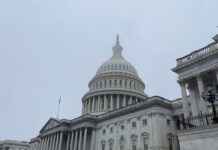
(GA Recorder) — The group tasked with training Georgia’s teachers voted unanimously and without discussion Thursday to eliminate more “woke” words from educator preparation standards.
This month’s changes will affect future teachers of subjects including science, math, English, history, economics, family and consumer science, physical education, dance, English as a second language, special education, and gifted classes.
The rules for each of these will be altered to replace words like “diverse,” “equity,” or “inclusion” with supposedly less politically charged alternatives like “differences” or “varied.”
For example, future special education teachers will be expected to create “supportive and welcoming” learning environments rather than “inclusive” ones, and dance instructors will teach their students about forms and styles from a “variety” of cultures instead of from “diverse” cultures.
Teachers wanting to earn an urban education endorsement will have to consider their “conscious and unconscious preconceptions” as opposed to their “implicit and explicit biases.” However, they will still be tasked with demonstrating “an understanding of the impact of racism and classism on the institutional, structural, and environmental (e.g., facilities, housing, zoning, resources, technology, etc.) inequalities in urban education.”
Previously, the board approved similar changes for different positions, including reading and literacy specialists and principals; the board also voted to strip the definition of diversity from teacher training rules.
Commission members said this wordplay came at the behest of the University System of Georgia and was designed to eliminate confusion over terms that have taken on politically charged meanings.
“These proposed rule amendments are not intended to redefine or remove the care preparation providers place on meeting students’ needs or prescribe the way (education preparation providers) choose to meet the program standards,” said Commission Chair Brian Sirmans at last month’s meeting. “We still expect EPPs to prepare educators who are well-equipped to address the learning needs of all students that they may encounter and who are well-prepared to meet the students where they are within a positive and welcoming learning environment.”
Darian Burns with the Southern Education Foundation told commissioners eliminating language about diversity will leave teachers less prepared to help kids learn.
“Current and future Georgia educators are going to be teaching in environments with students from various backgrounds, experiences, and cultures, and we need to ensure they know how to support and connect with all of their students, including those living in rural communities or our children of active military personnel,” she said.
Mikayla Arciaga, Georgia advocacy director and education policy fellows coordinator for the Intercultural Development Research Association, said the process to rewrite the rules was not transparent or open enough.

Commissioners participated in the meeting remotely, but any member of the public who wanted to testify had to come to the commission’s downtown Atlanta office.
“We have members that are in Athens, Augusta, Savannah, Macon, Thomasville,” she said. “Those are folks that are going to be impacted by these changes who cannot speak up or participate in this process because they don’t live here.”
“If the commissioners don’t have to attend in person, why are we requiring the public who, ultimately, these commissioners are supposed to serve?” she added. “Why are we holding the public to a different standard than we are holding our public servants?”






